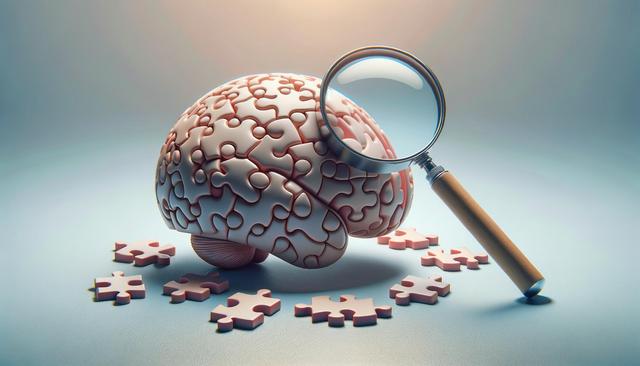The Importance of Mental Health Self-Assessments
In recent years, awareness around mental health has grown significantly, leading to more people seeking ways to understand their emotional well-being. Mental health self-assessments offer a practical and accessible method to begin this journey. Whether you’re feeling overwhelmed, persistently low, or just curious about your psychological state, tools like a quick mental health screening quiz can provide valuable insights. These tests are not meant to replace clinical diagnosis but can help identify potential concerns that warrant further evaluation by a healthcare professional.
One of the key benefits of using mental health tests is their ability to prompt early recognition of symptoms. Timely awareness can make a significant difference in managing conditions effectively. For instance, an online anxiety and depression self test can help highlight patterns that might otherwise go unnoticed in daily life. Similarly, a PTSD symptom checker online can support individuals in identifying trauma-related symptoms they may not have associated with past experiences.
Common areas these self-tests cover include:
- Mood and emotional regulation
- Stress and anxiety levels
- Attention and focus issues
- Personality traits affecting relationships
By using these tools as part of a broader mental health strategy, individuals can take proactive steps toward well-being and seek professional help when needed.
Popular Online Tests and Their Uses
Several types of mental health tests are available online, each tailored to specific conditions. These tests are designed to evaluate symptoms and provide a general overview of where someone might fall on the spectrum of a particular disorder. For example, a bipolar disorder self assessment helps users reflect on mood fluctuations, energy levels, and behavioral patterns over time. It can be especially useful for those who have experienced both high-energy periods and depressive episodes but aren’t sure what these shifts signify.
Another widely used tool is the ADHD online quiz for adults. Attention-related concerns are not just limited to children; many adults experience symptoms of ADHD such as disorganization, impulsivity, and difficulty concentrating. This type of self-assessment can offer insights that lead to meaningful conversations with a healthcare provider.
In addition to focus and mood, personality assessments like the borderline personality disorder test can help individuals explore how their thinking and behaviors impact relationships and emotional stability. These tests often include questions about fears of abandonment, impulsivity, and mood swings, all common traits associated with the condition.
These tools are generally designed to be short, user-friendly, and require no prior clinical knowledge. They serve as accessible entry points into understanding mental health and encouraging further action when needed.
Quick and Convenient: Instant Screening Benefits
One of the most appealing features of online mental health tests is their convenience. Many platforms offer a stress level test with instant results, allowing users to quickly gauge their emotional and physiological response to various pressures. This immediacy is beneficial for individuals who are unsure about what they’re experiencing and need a prompt reflection of their current mental state.
Quick mental health screening quizzes are particularly useful in moments of uncertainty. Whether it’s before a doctor’s visit, during a stressful life event, or simply out of curiosity, these tools provide a snapshot of mental wellness. While they don’t replace professional evaluation, they can help users articulate their symptoms better, making clinical consultations more efficient.
Benefits of instant online mental health screenings include:
- Time-saving and accessible anytime
- Encourages self-awareness and reflection
- Supports early detection of potential issues
- Helps track changes in mental health over time
For those hesitant to seek immediate professional help, these tests can serve as a gentle nudge toward exploring therapeutic options. They empower individuals to take the first step, often the most challenging part of the mental health journey.
Limitations and Responsible Use of Self-Assessments
While mental health self-assessments are valuable tools, it’s important to understand their limitations. These tests are not diagnostic tools and should not be used to self-diagnose complex psychological conditions. For instance, a borderline personality disorder test may suggest certain patterns, but only a licensed mental health professional can confirm a diagnosis and recommend treatment.
Another critical aspect is the reliability of the test source. Not all online tools are created equal. It’s essential to choose assessments from reputable organizations or platforms that are grounded in psychological research. Misleading or inaccurate tests can cause unnecessary worry or provide false reassurance.
To use these tools responsibly, consider the following:
- Use them as a starting point, not a conclusion
- Follow up any concerns with a healthcare provider
- Be honest and thoughtful in your responses
- Avoid over-reliance on online results for decision-making
Incorporating self-assessments into a broader wellness strategy that includes professional consultation, lifestyle changes, and support networks can lead to more effective mental health management.
Encouraging a Proactive Approach to Mental Health
Taking charge of your mental well-being begins with awareness, and mental health tests can be a valuable part of that process. Whether it’s an ADHD online quiz for adults or a stress level test with instant results, these tools encourage individuals to reflect on their emotional states and consider the need for further support. They promote a mindset of proactive care rather than reactive crisis management.
Incorporating regular check-ins with tools like an online anxiety and depression self test or a PTSD symptom checker online can help individuals monitor changes in their mental health. This is especially helpful in today’s fast-paced world, where stressors can quickly accumulate. Recognizing symptoms early allows for timely intervention, which can significantly improve outcomes.
It’s also important to normalize the use of these tests. Just as people routinely check their blood pressure or cholesterol levels, checking in on mental health should be a standard part of overall wellness. The more individuals engage in self-reflection and education, the more empowered they become in managing their mental health journey.
Ultimately, mental health self-assessments are not just tools—they’re an invitation to better understand oneself and take meaningful steps toward emotional balance and well-being.
Conclusion: Taking the First Step Toward Mental Wellness
For anyone navigating emotional challenges or seeking greater self-understanding, mental health tests provide a helpful and accessible starting point. Whether you’re curious about your mood patterns, stress response, or attention levels, tools like the quick mental health screening quiz or the bipolar disorder self assessment can offer valuable insights. While they aren’t substitutes for professional care, they play a meaningful role in promoting awareness and encouraging timely support.
By using reliable resources and following up with healthcare professionals, individuals can take informed steps toward improved mental health. These self-assessments empower users to prioritize their well-being in a proactive, respectful, and informed manner—making them a useful addition to any mental health toolkit.



Leave a Reply